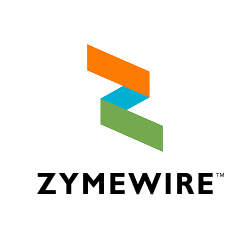Dive Brief:
- Fresh data from a late-stage study showed Bayer and Orion's experimental prostate cancer drug darolutamide significantly extended metastasis-free survival versus placebo in patients with non-metastatic forms of the tumor type.
- Adding darolutamide to androgen deprivation therapy (ADT) resulted in a 59% reduction in the risk of metastasis or death compared to placebo plus ADT in patients with non-metastatic castration-resistant prostate cancer, according to data published Thursday in the New England Journal of Medicine.
- Bayer is jointly developing the therapy with Finnish drugmaker Orion, and stated it plans to begin discussing the results with regulators about a potential filing for approval. The companies presented the data from the trial, dubbed ARAMIS, at this week's Genitourinary Cancers Symposium in San Francisco.
Dive Insight:
Bayer is hoping the ARAMIS results will be enough to vault darolutamide into contention with already approved therapies, including Pfizer and Astellas' Xtandi (enzalutamide) and Johnson & Johnson's Erleada (apalutamide).
Erleada was the first drug to secure Food and Drug Administration approval for non-metastatic, castration-resistant prostate cancer.
In ARAMIS, patients on the darolutamide arm had a median metastasis-free survival time of about 40 months, compared to 18 months for those given placebo and ADT. That efficacy data, however, is generally in line with what was reported from studies of Xtandi and Erleada, the NEJM article states.
"The median metastasis-free survival with darolutamide in the current trial is similar to that in two previous randomized, controlled trials involving patients with nonmetastatic, castration-resistant prostate cancer," the study's authors wrote.
The NEJM authors characterized the data on overall survival as immature, while Bayer described a "positive trend" in survival.
That leaves safety and tolerability results as a potential differentiator. Study results showed the occurrence of adverse events was "generally similar" between the darolutamide and placebo groups, the paper's authors wrote, excepting fatigue.
But compared to the Phase 3 studies of the competing drugs, fatigue and asthenia levels were less common, the authors stated, which could lead to a competitive advantage.
"In addition to a benefit in MFS, a favorable safety profile is critical for these largely asymptomatic nmCRPC patients because treatment decisions can impact their overall well-being, prognosis and compliance with the treatment as well as other medications that are typical for this patient population," said Karim Fizazi, one of the NEJM authors and a medicine professor at the Institut Gustave Roussy, in a statement.
The study tested roughly 1,500 patients, giving darolutamide twice daily to slightly less than 1,000 patients, with the remainder on the placebo arm.













